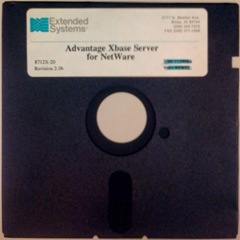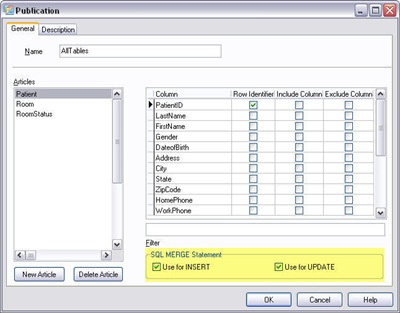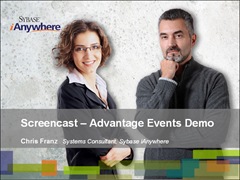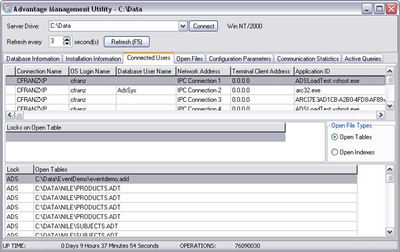 Advantage Database Server turned 15 years old this year. The first public release of Advantage, version 2.0, was released in August 1993. I started working with Advantage back in 1999 in the Technical Support department. At that time Advantage version 5.5 was the current release and version 5.6 was in beta. The R&D team was hard at work developing an OLEDB provider for Advantage so I had the opportunity to do a lot of testing with this new Advantage client.
Advantage Database Server turned 15 years old this year. The first public release of Advantage, version 2.0, was released in August 1993. I started working with Advantage back in 1999 in the Technical Support department. At that time Advantage version 5.5 was the current release and version 5.6 was in beta. The R&D team was hard at work developing an OLEDB provider for Advantage so I had the opportunity to do a lot of testing with this new Advantage client.
Advantage Database Server started out as DBXcellerator which was a hardware solution designed to speed up the process of creating clipper indexes. It quickly evolved into a software product earning a patent for an Xbase Transaction Processing System.
Version 2.0b was the first publicly available release and was called Advantage Xbase Server which ran on Netware and supported Clipper clients. This continued through the 3.x releases.
With the release of Advantage 4.0 the name was changed to Advantage Database Server and new clients were introduced. An ODBC driver and a native client for Visual Objects were included with version 4.0. In early 1997 the first version of Advantage for Windows was released. Advantage version 4.21 ran on Windows NT 4.0 as a service. Shortly after that the first Advantage Internet Server (AIS) was released as a separate application which allowed for secure connections over the Internet. AIS also earned a patent for One Pass Security.
The Advantage Client Engine (ACE) was released with version 4.4 of Advantage as version 1.0. This included the first version of the TAdsTable component for Delphi 3. This release also included a 32-bit ODBC driver and the Windows Comm Layer. ACE also included several header files for use in various development environments.
Advantage 5.0 included version 2.0 of all the ACE based clients and support for TCP/IP on Netware was added in version 5.1. Advantage introduced our native SQL engine, called StreamlineSQL, in version 5.5. A native Crystal Reports Driver was added in early 2000 and the ODBC driver was updated to use the native SQL engine. Advantage Data Architect, which was originally available as an example project, was updated and added as an official product in version 5.7.
The Data Dictionary was introduced in version 6.0 which added support for many relational features. The Advantage Internet Server functionality was added to the server removing the need to use a separate application to connect securely over the Internet. All of the Advantage clients were renumbered so the client version matched the server version to eliminate confusion. The first Advantage Database Server for Linux was released in version 6.11 in 2002. We also released a client for Kylix for creating Linux client applications.
Since then we have added many more relational features including; Full Text Search, Replication, Online Backup, SQL UDFs and Notifications. New clients were added including; PHP, DBI/PERL, JAVA and .NET. In an attempt to consolidate this history I put together a timeline using TimeToast which provides a timeline of Advantage releases since version 2.0b. I hope to update the timeline with more pictures and events when I can get them compiled. You can view the full size timeline here.





![PragmaticProgrammer[2] PragmaticProgrammer[2]](http://lh6.ggpht.com/_pJ4HkzTKiOA/SSNKc22v-eI/AAAAAAAACZ8/SOEF9feo93k/PragmaticProgrammer%5B2%5D%5B6%5D.jpg?imgmax=800)
 Many thanks to everyone who attended the Advantage Technical Summit. We conducted our usual two days of training and added an additional half day of hands-on training. The training was well received and I had a great time interacting with all of the participants during the event.
Many thanks to everyone who attended the Advantage Technical Summit. We conducted our usual two days of training and added an additional half day of hands-on training. The training was well received and I had a great time interacting with all of the participants during the event.
